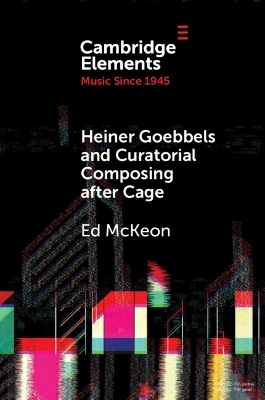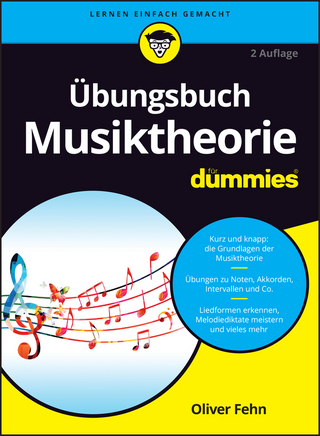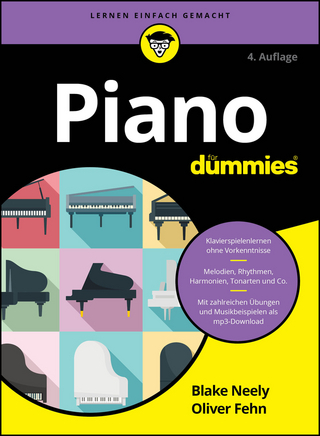
Heiner Goebbels and Curatorial Composing after Cage
From Staging Works to Musicalising Encounters
Seiten
2022
Cambridge University Press (Verlag)
978-1-009-33760-1 (ISBN)
Cambridge University Press (Verlag)
978-1-009-33760-1 (ISBN)
This Element introduces the notion of curatorial composing to account for certain musical practices that emerged as the founding concepts of music as an art – instituted in the modern era – were systematically dismantled. It argues that these practices shift the paradigm to a curatorial concern for composing public encounters and staging events.
This Element introduces the notion of curatorial composing to account for certain musical practices that emerged from the 1960s as the founding concepts of music as an art – instituted in the modern era – were systematically dismantled. It raises the key question of how musical value and authority might be produced without recourse to an external principle, origin, transcendental framework, or other foundation. It argues that these practices do not dismiss the issue of value or simply relativise it but shift the paradigm to a curatorial concern for composing public encounters and staging events. The Element shows that Lydia Goehr's elaboration of the work-concept provides a framework that was transformed by John Cage in his work from 0'00” (1962) onwards. The Element then introduces Heiner Goebbels' practice and focus on his role as Artistic Director of the Ruhrtriennale (2012–14), which it argues was an extension of his curatorial composing.
This Element introduces the notion of curatorial composing to account for certain musical practices that emerged from the 1960s as the founding concepts of music as an art – instituted in the modern era – were systematically dismantled. It raises the key question of how musical value and authority might be produced without recourse to an external principle, origin, transcendental framework, or other foundation. It argues that these practices do not dismiss the issue of value or simply relativise it but shift the paradigm to a curatorial concern for composing public encounters and staging events. The Element shows that Lydia Goehr's elaboration of the work-concept provides a framework that was transformed by John Cage in his work from 0'00” (1962) onwards. The Element then introduces Heiner Goebbels' practice and focus on his role as Artistic Director of the Ruhrtriennale (2012–14), which it argues was an extension of his curatorial composing.
1. Musical elements; 2. The work-concept and its limits; 3. Variable time: cage after Schoenberg; 4. Heiner Goebbels: questioning authority; 5. Spaces of appearance; 6. After words; References.
| Erscheinungsdatum | 14.11.2022 |
|---|---|
| Reihe/Serie | Elements in Music since 1945 |
| Zusatzinfo | Worked examples or Exercises |
| Verlagsort | Cambridge |
| Sprache | englisch |
| Maße | 152 x 228 mm |
| Gewicht | 150 g |
| Themenwelt | Kunst / Musik / Theater ► Musik |
| ISBN-10 | 1-009-33760-2 / 1009337602 |
| ISBN-13 | 978-1-009-33760-1 / 9781009337601 |
| Zustand | Neuware |
| Haben Sie eine Frage zum Produkt? |
Mehr entdecken
aus dem Bereich
aus dem Bereich


